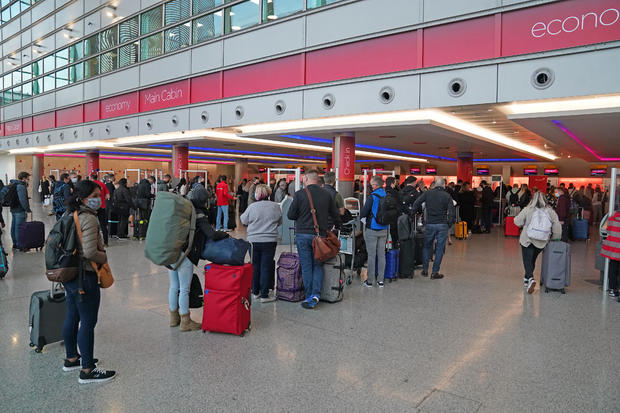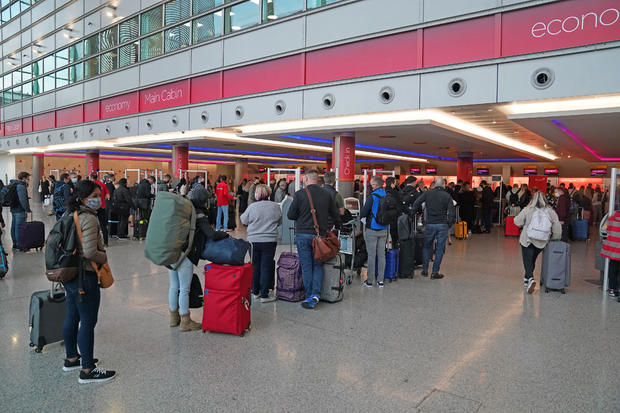The U.S. lifted restrictions Monday on non-essential travel from a long list of countries including Mexico, Canada and most of Europe, allowing tourists to make long-delayed trips and family members to reconnect with loved ones after more than a year and a half apart because of the pandemic .
Starting Monday, the U.S. is accepting fully vaccinated travelers at airports and land borders, doing away with a COVID-19 restriction that dates back to the Trump administration. The new rules allow air travel from previously restricted countries as long as the traveler has proof of vaccination and a negative COVID-19 test. Land travel from Mexico and Canada will require proof of vaccination but no test.
Airlines are expecting more travelers from Europe and elsewhere. Data from travel and analytics firm Cirium showed airlines are increasing flights between the United Kingdom and the U.S. by 21% this month over last month.
Agence France-Presse reports that passengers in airports in Europe were eagerly getting on U.S.-bound planes, and there were long lines before dawn at the borders with Mexico and Canada.
For instance, AFP said, there was a line before sunrise on the Rainbow Bridge between Niagara Falls in Ontario, Canada and New York.

The change will have a profound effect on the borders with Mexico and Canada, where traveling back and forth was a way of life until the pandemic hit and the U.S. shut down nonessential travel.
Malls, restaurants and Main Street shops in U.S. border towns have been devastated by the lack of visitors from Mexico. On the boundary with Canada, cross-border hockey rivalries were community traditions until being upended by the pandemic. Churches that had members on both sides of the border are hoping to welcome parishioners they haven’t seen during COVID-19 shutdown.
Loved ones have missed holidays, birthdays and funerals while nonessential air travel was barred, and they are now eager to reconnect.
According to the Centers for Disease Control and Prevention, the U.S. will accept travelers who have been fully vaccinated with any of the vaccines approved for emergency use by the World Health Organization, not just those in use in the U.S. That means that the AstraZeneca vaccine, widely used in Canada, will be accepted.
For air travelers, the airlines are required to verify vaccine records and match them against ID, and if they don’t, they could face fines of up to nearly $35,000 per violation. Airlines will also collect information about passengers for contact tracing efforts. There will be CDC workers spot-checking travelers for compliance in the U.S. At land borders, Customs and Border Protection agents will check vaccine proof.
The moves come as the U.S. has seen its COVID-19 outlook improve dramatically in recent weeks since the summer delta surge that pushed hospitals to the brink in many locations.
